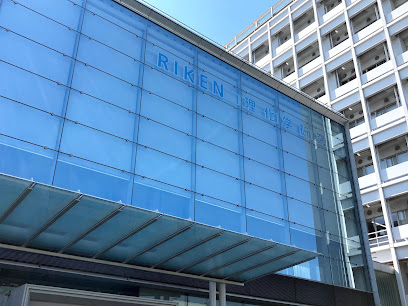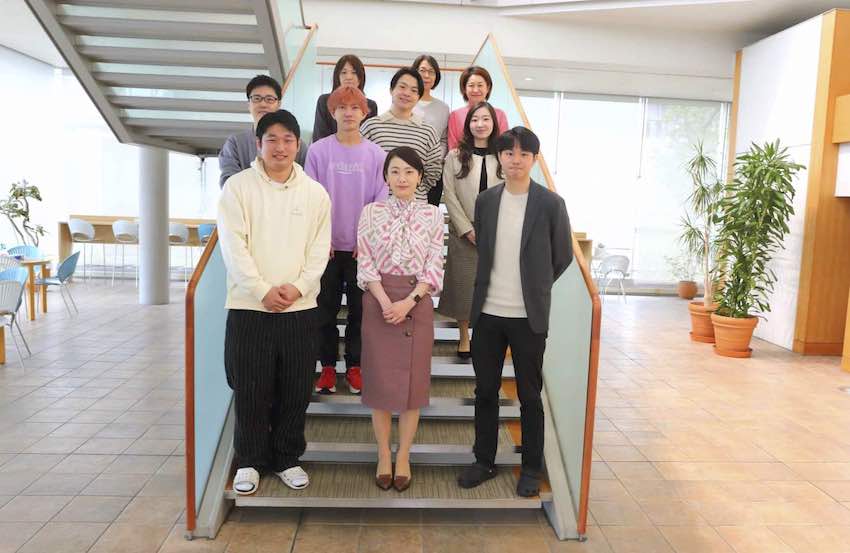One of the significant achievements of recent transcriptome research is elucidating the importance of "non-coding genomic regions" that do not encode proteins. In diverse eukaryotes, non-coding genomic regions occupy huge portions of the genome. They include non-coding RNAs that do not code for proteins but perform various functions as RNAs and transposons that have the property of transposing or jumping around the genome. We aim to understand diseases, including developmental disorders, from new perspectives by clarifying and regulating the functional mechanisms of non-coding genomic regions.
Seeking for the functions of non-coding genomic regions
- Functional roles of transposons
What are the functional roles of transposons, which make up a vast proportion of the genomes of higher eukaryotes? What are the effects of transposons on chromatin state, gene expression, phenotype, and disease?
- Regulatory mechanisms of transposons
Transposons have both "negative" aspects that induce genome destabilization and "positive" aspects that promote evolution and biological diversity. How is the expression of these transposons regulated?
- Biogenesis and functions of non-coding RNA
How are non-coding RNAs processed and what are their functional roles? By understanding the functional mechanisms of non-coding RNAs, can we develop new epigenetic modification tools?
The relevant research fields and areas include:
- 【Molecular Biology】especially biochemistry, epigenetics, and chromatin biology
- 【Genome Biology】especially omics analysis and systems genome science
- 【RNA Biology】especially non-coding RNA, small RNA, and RNA silencing

Publications
Click here for the full list of publications.
Selected publications:
# co-first author; * corresponding author
- Iwasaki YW, Shoji K, Nakagwa S, Miyoshi T, Tomari Y.
Trends in Genetics, Feb 19:S0168-9525(25)00009-5 (2025)
Transposon–host arms race: a saga of genome evolution.
- Ariura M, Solberg T, Ishizu H, Takahashi H, Carninci P, Siomi H*, Iwasaki YW.
Cell Reports, 43(12): 115020 (2024)
Drosophila Piwi distinguishes transposons from mRNAs by piRNA complementarity and abundance.
- Takeuchi C, Yokoshi M, Kondo S, Shibuya A, Saito K, Fukaya T, Siomi H*, Iwasaki YW*.
Nucleic Acids Research, 50(20): 11580–11599 (2022)
Mod(mdg4) variants repress telomeric retrotransposon HeT-A by blocking subtelomeric enhancers.
- Iwasaki YW*, Sriswasdi S, Kinugasa Y, Adachi J, Horikoshi Y, Shibuya A, Iwasaki W, Tashiro S, Tomonaga T, Siomi H*.
The EMBO Journal, 40: e108345 (2021)
Piwi–piRNA complexes induce stepwise changes in nuclear architecture at target loci.
- Hasuwa H, Iwasaki YW, Au Yeung WK, Ishino K, Masuda H, Sasaki H, Siomi H*.
Nature Cell Biology, 23: 1002-1012 (2021)
Production of functional oocytes requires maternally expressed PIWI genes and piRNAs in golden hamsters.
- Murano K#, Iwasaki YW#*, Ishizu H, Mashiko A, Shibuya A, Kondo S, Adachi S, Suzuki S, Saito K, Natsume T, Siomi MC, Siomi H*.
The EMBO Journal, 38: e102870 (2019)
Nuclear RNA export factor variant initiates piRNA‐guided co‐transcriptional silencing.
- Nishida KM#, Sakakibara K#, Iwasaki YW, Yamada H, Murakami R, Murota Y, Kawamura T, Kodama T, Siomi H, Siomi MC*.
Nature, 555: 260-264 (2018)
Hierarchical roles of mitochondrial Papi and Zucchini in Bombyx germline piRNA biogenesis.
- Iwasaki YW, Murano K, Ishizu H, Shibuya A, Iyoda Y, Siomi MC, Siomi H*, Saito K*.
Molecular Cell, 63: 408–419 (2016)
Piwi modulates chromatin accessibility by regulating multiple factors including Histone H1 to repress transposons.
- Sato K#, Iwasaki YW#, Shibuya A, Carninci P, Tsuchizawa Y, Ishizu H, Siomi MC*, Siomi H*.
Molecular Cell, 59: 553–563 (2015)
Krimper enforces an antisense bias on piRNA pools by binding AGO3 in the Drosophila germline.
- Iwasaki YW, Siomi MC*, Siomi H*.
Annual Review of Biochemistry, 84: 405-433 (2015)
PIWI-interacting RNA: its biogenesis and functions.
- Hirano T#, Iwasaki YW#, Lin ZY, Imamura M, Seki NM, Sasaki E, Saito K, Okano H, Siomi MC, Siomi H*.
RNA, 20: 1223-1237 (2014)
Small RNA profiling and characterization of piRNA clusters in the adult testes of the common marmoset, a model primate.
- Iwasaki YW#, Kiga K#, Kayo H, Fukuda-Yuzawa Y, Weise J, Inada T, Tomita M, Ishihama Y, Fukao T*.
RNA, 19: 490-497 (2013)
Global microRNA elevation by inducible Exportin 5 regulates cell cycle entry.
Opportunities
We are looking for highly motivated individuals to pursue academic research and possess a flexible and creative mindset, as well as a willingness to collaborate with other members of our laboratory.
For graduate students:
Graduate students can be accepted into our laboratory through a collaborative research contract. RIKEN provides graduate education fellowships, that support PhD students. Refer to International Program Associate website for detalis. If you are interested in joining our lab, please examine our publication list and contact us via e-mail.
For postdoctoral researchers:
If you are interested in pursuing the research goals described above in our laboratory, please examine our publication list and contact us via e-mail. Information on our postdoctoral position availability may be posted in RIKEN website (please make a search with the term "functional non-coding genomics"). In addition, we may help you obtain fellowships such as RIKEN Special Postdoctoral Researchers Program and Postdoctoral Fellowships for Research in Japan, Japan Society for the Promotion of Science.

Contact

Address:
Laboratory for Functional Non-coding Genomics
1-7-22 Suehiro-cho, Tsurumi-ku,
Yokohama, Kanagawa 230-0045, Japan
[RIKEN website]
Access:
Access to RIKEN Yokohama
Campus map of RIKEN Yokohama
Google Maps (RIKEN Yokohama)
e-mail address:
yiwasaki riken.jp(Yuka W. Iwasaki)
riken.jp(Yuka W. Iwasaki)





 riken.jp(Yuka W. Iwasaki)
riken.jp(Yuka W. Iwasaki)